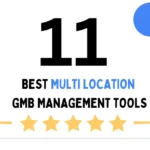Introduction
Most teams don’t wake up wanting a custom CRM. They want a pipeline they trust, changes that don’t take a quarter, and reports leaders actually open.
Off-the-shelf platforms promise speed and breadth; custom work promises fit and focus. The hard part is knowing where the configuration ends and when a CRM development company should step in.
Therefore, this blog takes a closer look at the different aspects of custom vs. off-the-shelf CRM and when hiring a company makes sense. Let’s get started.
Off-the-Shelf CRM: Where It Wins?
If your sales motions are conventional and your stack is mainstream, start here. You get proven objects, mature automations, app-store add-ons, and admin-friendly controls. RevOps can tune fields and flows without shipping a new build. For many organizations, that’s enough to move faster than spreadsheets and side systems.
Signs Off-the-Shelf Is Enough
- Your stages, handoffs, and approvals look like every vendor demo you’ve seen.
- Admins (not engineers) will own most changes for the next year.
Custom or Hybrid: When Fit Beats Speed
Custom (or deep customization on a commercial platform) matters when the CRM is a system of record, not just a list. If pricing depends on usage, if risk scores affect approvals, or if contracts trigger entitlements downstream, configuration alone can turn brittle.
The moment people work around the tool with side spreadsheets and manual exports, you’re paying a hidden tax in rework and delay.
A pragmatic path is “hybrid”: keep commodity features native, customize where your differentiators live, and integrate like revenue depends on it.
Triggers for Custom/Hybrid
- Non-standard products (bundles, usage, multi-tier resellers) that don’t fit the default objects.
- Entitlements, SLAs, or fulfillment logic tied to contracts and credit.
When creating custom processes, it’s best to work with the software development company Brainvire. It gives you access to premier support and development.
Factors to Consider When Choosing Between Custom Vs. Off-the-Shelf
Think in Total Cost of Ownership
Licenses vs. developer hours is the wrong equation. Configuration-heavy builds initially appear cost-effective until duplication, data cleanup, brittle flows, and manual reporting consume significant time.
Custom looks pricey up front, but stabilizes when the model reflects reality and edge cases stop multiplying. Ask which option reduces daily decisions and quarterly exceptions—then pick that one.
Integrations Decide the Case
CRMs sit between the website, CPQ, billing, ERP, marketing, and support. If the systems on either side have strict APIs or timing rules, you need integrations treated as first-class artifacts, versioned, tested, monitored – not quick scripts.
A capable CRM development company will define data contracts, idempotency, retries, and error handling before creating the first field. That discipline prevents duplicate records, missed renewals, and “CSV today, import tomorrow” workarounds.
Data Model & Reporting: Encode Reality Once
When core entities don’t fit standard objects, you can fake it with custom fields for a while. Reporting suffers, automations multiply, and new hires stop trusting the data. Model resellers, usage, territories, and commissions explicitly.
Here, dashboards become simple: pipeline health, renewal risk, campaign influence. Executives buy CRMs to quickly answer obvious questions, designing the model so those answers are generated automatically, not just through a weekly export.
Security, Compliance, and Audit
In regulated sectors, it’s not enough to hide a field. You’ll need field-level security by role and region, audit trails, lawful-basis tracking, and predictable deletion across primaries and analytics.
Off-the-shelf platforms offer the primitives; the gap is end-to-end implementation. Customizations must preserve these guarantees so audits pass without heroics.
Delivery Without the Drag
Speed doesn’t require “build everything now.” The right partner proves value with one thin, end-to-end slice—one journey, one upstream integration, one downstream system, one report that leadership uses. Ship that behind a feature flag, learn, then repeat. Each slice reduces risk by hitting real data and real users early.
When Not to Go for Custom Development?
If your pipeline is straightforward, your team is small, and your processes match platform defaults, resist the urge to engineer.
Use standard objects, adopt native automations, and defer bespoke features until usage data proves the need. Reinvest the saved time in data hygiene, enablement, and clean handoffs from marketing.
What Does A Strong Partner Do for Your Operations?
A credible CRM development company spends more time on discovery than on demos. They map motions and inventory data, then select a baseline platform that minimizes custom code.
Expect a hybrid plan: Commodity features stay native; differentiators get built; integrations are designed like products with tests and monitoring.
Deliverables are concrete: An information model, non-negotiables for roles and permissions, and a retention/audit plan legal representative can sign.
Why Brainvire for the Hybrid Middle?
When the fit leans custom, or you need to harden a complex configuration, Brainvire, a software development company, brings the full stack: data modeling that mirrors the business, integrations that don’t flake under load, and a rollout that moves one metric at a time.
Brainvire keeps commodity workflows native, where it helps and builds only where it pays, so teams adopt the CRM because it works the way they do.
Making the Call
This isn’t ideology; it’s trade-offs. Off-the-shelf wins when processes match defaults and time-to-value is the goal. Custom (or targeted hybrid) wins when fidelity to your motion pays back in cleaner data, faster cycles, and fewer exceptions.
Choose the path that lowers daily friction, ship a small slice, measure the outcome, and keep only what moves the needle.
Not sure where your line sits? Bring one workflow and the report you can’t get today. We’ll show whether the configuration is enough, or where a focused build with a CRM development company like Brainvire pays for itself.
You May Also Read: Benefits of Team Collaboration Tools for Small Businesses











